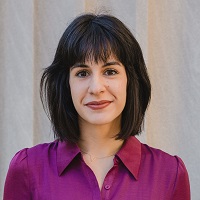Position: PhD Candidate
Current Institution: MIT
Abstract: Distributed Kalman Filters for Spatially-invariant Systems: Trade-offs Between Performance and Architecture
Large-scale spatially distributed dynamical systems are common in modern applications. Traditional (centralized) Kalman filtering techniques are often infeasible in these systems as they impose a prohibitive communication burden. Instead it is desirable to limit sensory information exchange between subsystems to reduce communications. However imposing structural constraints in the communication architecture makes the design of filters with optimal performance hard. In this work we consider spatially invariant dynamical systems. First we show that spatial invariance yields interesting properties in the communication architecture of the centralized Kalman filter. Second we leverage this insight to propose a novel optimal structured (decentralized) Kalman filter design technique for spatially invariant systems proving that the optimal structured filter is the solution to a convex optimization problem. We illustrate our methodology by designing a decentralized Kalman filter for a diffusion process for which we evaluate the performance-architecture trade-off. Joint work with Professors Bassam Bamieh, Anette Hosoi, and Ali Jadbabaie.
Bio:
Juncal is a PhD candidate in Applied Mathematics at MIT with a previous background in engineering. She is co-advised by Prof. Ali Jadbabaie and Prof. Anette Hosoi. Her research lies at the intersection of optimization dynamical systems control and statistical estimation. Particularly she is interested in understanding performance-complexity trade-offs in spatially distributed systems and in tractable formulations for the design of spatially-structured (decentralized) controllers and filters for these systems. She has received multiple fellowships for her doctoral research including the MIT Presidential Fellowship and Google’s Anita Borg Scholarship. Juncal is active in science outreach mentoring students and breaking down the barriers to entry which women encounter in STEM fields. To further these aims she collaborates with several organizations and has been part of the executive board of Graduate Women at MIT (GWAMIT) and representative of the Mathematics department in the MIT Diversity & Inclusion committee.
